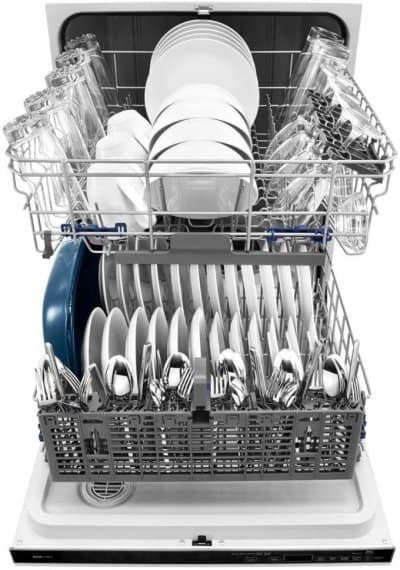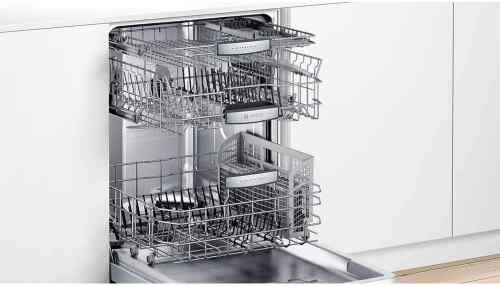Have you ever noticed an unpleasant odor emanating from your freshly washed dishes? It can be quite frustrating to take out supposedly clean dishes from the dishwasher only to be greeted by an unwelcome smell. But fear not! In this article, we will explore the reasons behind this issue and provide you with practical solutions to ensure your dishes come out smelling fresh and clean every time.
Washing dishes is a chore that most of us rely on dishwashers to handle efficiently. However, if you’ve noticed a foul odor lingering on your dishes even after running them through the dishwasher, there may be a few factors contributing to this unpleasant experience. Let’s delve into some of the common causes and discover effective ways to eliminate the odor.
Table of Contents
How Does a Dishwasher Work?
Before we delve into the reasons behind smelly dishes, let’s quickly review how a dishwasher works. A dishwasher is designed to spray water mixed with detergent onto the dishes, using high-temperature water to remove food particles, grease, and bacteria. The water is then drained, and hot air is circulated to aid in drying the dishes. Understanding this process will help us pinpoint potential issues that can lead to the odor problem.
Common Causes of Smelly Dishes
- Bacterial Growth in the Dishwasher: Over time, bacteria can accumulate in various parts of the dishwasher, such as the filters, spray arms, and seals. This bacterial growth can contribute to the foul smell on your dishes.
- Food Residue and Grease Buildup: If you don’t thoroughly rinse your dishes before loading them into the dishwasher, food residue and grease can accumulate. This can result in unpleasant odors, especially when left sitting in a warm, moist environment.
- Hard Water and Mineral Deposits: If your area has hard water, mineral deposits can accumulate inside your dishwasher. These deposits can harbor bacteria and cause odors.
- Clogged Drain or Filter: A clogged drain or filter can prevent proper drainage of water from the dishwasher. This stagnant water can develop an unpleasant smell over time.
- Inadequate Drying: If your dishwasher doesn’t dry the dishes properly, moisture can linger, creating an ideal environment for bacteria to grow and cause odor issues.

Tips to Prevent Smelly Dishes
Now that we’ve identified the common causes of smelly dishes, let’s explore some effective tips to prevent this issue and ensure your dishes come out smelling fresh and clean:
- Regular Cleaning and Maintenance: Regularly clean the dishwasher by removing and cleaning the filters, wiping down the interior, and running a cleaning cycle with a dishwasher cleaner. This will help eliminate bacteria and food residue buildup.
- Proper Loading Techniques: Ensure that you load the dishes properly, allowing proper water circulation and preventing food particles from accumulating in hard-to-reach areas. Avoid overcrowding the dishwasher to ensure effective cleaning.
- Use of Dishwasher Cleaner: Periodically use a dishwasher cleaner to remove mineral deposits and eliminate odors caused by hard water. Follow the manufacturer’s instructions for the best results.
- Water Softening Techniques: If you have hard water, consider installing a water softener or using dishwasher salt to reduce mineral deposits. This will help prevent odor-causing buildup in your dishwasher.
How often should I clean my dishwasher?
It is recommended to clean your dishwasher once a month or as needed, depending on your usage. Regular maintenance will help prevent odors and ensure optimal performance.
Can I use vinegar to clean my dishwasher?
Yes, vinegar is an excellent natural cleaner for dishwashers. Run an empty cycle with a cup of vinegar placed on the top rack to remove odors and clean the interior.
Why do my plastic dishes sometimes have a lingering smell?
Plastic dishes can retain odors more easily than other materials. Ensure you’re rinsing them thoroughly before loading them into the dishwasher and try using a dishwasher-safe plastic container for odor-prone items.
How can I improve the drying performance of my dishwasher?
Make sure that the rinse aid dispenser is filled, and the dishwasher’s drying setting is appropriately adjusted. Also, allow the dishes to sit in the dishwasher for a while after the cycle ends to let them air dry further.
Is it necessary to pre-rinse dishes before loading them into the dishwasher?
While it’s not necessary to pre-rinse dishes, it’s advisable to scrape off large food particles to prevent clogging the filters and ensure optimal cleaning.
Conclusion
Nobody wants their freshly washed dishes to emit an unpleasant odor. By understanding the common causes of smelly dishes and implementing the preventive measures discussed in this article, you can ensure that your dishwasher delivers clean and fresh-smelling dishes every time. Remember to clean and maintain your dishwasher regularly, use proper loading techniques, and consider water softening techniques if needed. Enjoy the convenience of a clean dishwasher and odor-free dishes!

